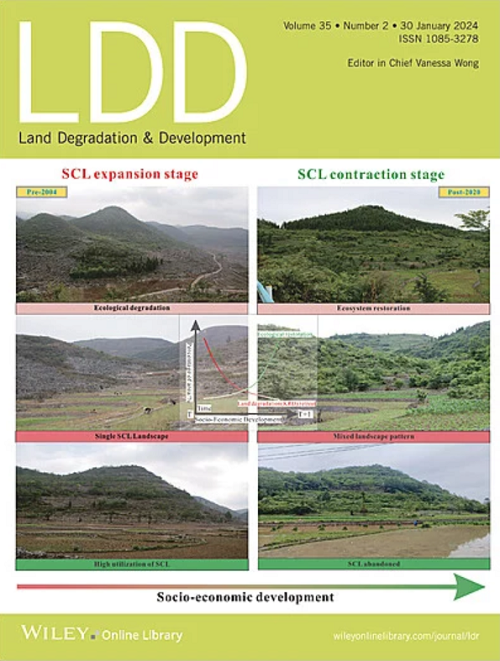Land Use Changes and Sustainable Development Goals Alignment Through Assessing Ecosystem Service Supply and Demand Balance
IF 3.6
2区 农林科学
Q2 ENVIRONMENTAL SCIENCES
引用次数: 0
Abstract
Ecosystem service quality is closely linked to human well-being, and sustainable provision of ecosystem service is essential for ensuring regional ecological security and achieving sustainability goals. An innovative valuation framework is introduced that combines land use/cover change (LUCC) analysis, supply and demand matrices and Gini coefficient calculations to assess the supply and demand of ecosystem services (ES-S and ES-D). Unlike traditional static methods, this approach captures intricate spatial and temporal mismatches, offering new insights into the impacts of LUCC on ES balance within the framework of sustainable development goals (SDGs). Taking the Three Gorges Reservoir Area (TGRA) as a case study, the findings indicate a significant decrease in cultivated land, accompanied by expansion of forest and built-up area, driven by farmland-to-forest policies and urbanization. These shifts have improved the balance of provisioning and supporting services but have also intensified regional disparities, particularly in Chongqing, where demand outpaces supply. Furthermore, LUCC have altered the capacity of ecosystems in the TGRA to provide essential services, such as soil retention and water regulation, thereby supporting progress toward SDGs related to ecosystem sustainability. However, imbalances in cultural services persist, highlighting the need for targeted management strategies to optimize ES provision and support regional sustainability. This study underscores the importance of ongoing ES-S and ES-D assessments to inform sustainable land management policies in ecologically sensitive areas like the TGRA.求助全文
约1分钟内获得全文
求助全文
来源期刊

Land Degradation & Development
农林科学-环境科学
CiteScore
7.70
自引率
8.50%
发文量
379
审稿时长
5.5 months
期刊介绍:
Land Degradation & Development is an international journal which seeks to promote rational study of the recognition, monitoring, control and rehabilitation of degradation in terrestrial environments. The journal focuses on:
- what land degradation is;
- what causes land degradation;
- the impacts of land degradation
- the scale of land degradation;
- the history, current status or future trends of land degradation;
- avoidance, mitigation and control of land degradation;
- remedial actions to rehabilitate or restore degraded land;
- sustainable land management.
 求助内容:
求助内容: 应助结果提醒方式:
应助结果提醒方式:


